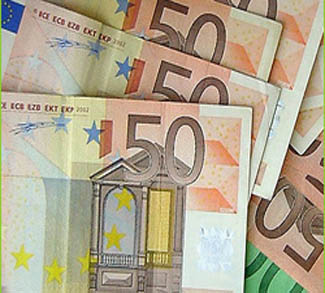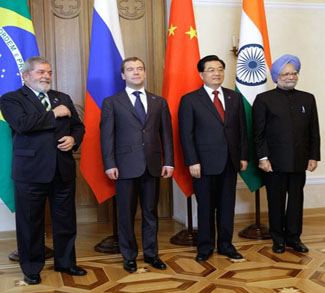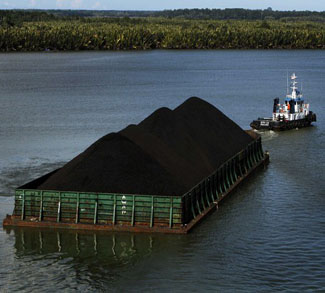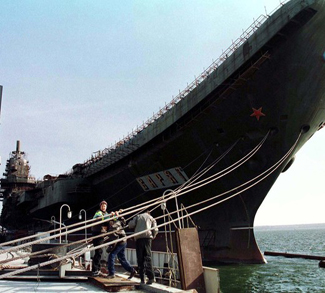Asia
North Korea (Military)
The Kim Jong-un government is ramping up the ferocity of its rhetoric against its Korean neighbour to the south and US forces stationed throughout East Asia. While seasoned Korea watchers have seen this all play out before, usually ending with some kind of carrot being offered by the US or South Korea, it’s possible that this time will produce a different outcome. Given the lack of sustained results from ‘sunshine policies’ of the past, the US and South Korea will likely ignore the North’s threats, and this may drive Kim Jong-un to attempt a repeat of the 2010 sinking of the Cheonan. If the North Koreans were to attempt a limited military strike, this time it’s almost certain that the South Koreans would respond in turn.
Amidst the rhetoric and posturing, there are a few indications that the US is taking the threat seriously. While B2 bomber flights over the Korean peninsula are largely symbolic, the dispatching of the USS McCain guided-missile destroyer to waters off the Korean peninsula will help bolster the US and its allies’ missile defense in the region.
For more information:
The Expanding X-Band Radar Network: US ‘Asia Pivot’ Gets Real
The Eternal Déjà vu of Inter-Korean Conflict
China (Political)
The new Xi Jinping administration in China has made a clear statement as to where its priorities lie via the president’s first string of overseas trips. The first stop was Moscow, where President Xi signed a series of economic deals with Russia. Most of these deals pertained to energy cooperation, and it appears that the two sides are moving closer to the construction of a natural gas pipeline from Russia to China. In this and other negotiations, price disagreements were ironed out with the promise of infrastructure loans from the China Development Bank (CDB).
Next, President Xi visited Tanzania, South Africa, and the Democratic Republic of Congo. The itinerary reflects the new administrations focus on Africa: as a reservoir of natural resources, a market for Chinese exports, and potentially as a spoke in the planned network of supply depots for China’s future blue water navy. While it’s no secret that Africa figures prominently in China’s long-term foreign policy and economic planning, this focus has begun to produce a bit of local blowback in the form of scattered accusations of neo-colonialism. These accusations put major Chinese media outlets like the Global Times and China Daily on the defensive occasionally over the course of President Xi’s trip.
For more information:
China: Enter the Xi Jinping Administration\
Japan (Economic)
Prime Minister Shinzo Abe’s interventionist economic policy, or ‘Abenomics,’ continues to influence the Japanese economy, and most economic observers still aren’t sure whether the process will end with a definitive escape from Japan’s deflationary limbo or a hyperinflationary spiral that ends up making deflation look like the good old days. Whatever the case, economic sentiment among big Japanese corporations is turning positive, and if the new governor of the Bank of Japan can keep the process of quantitative easing under control, then the Abe government will be looking to maintain a GDP growth rate of 3%, a central interest rate of 3.5%, and an inflation rate under 2%.
For more information:
New Faces at the Bank of Japan
South America
Argentina (Economic)
Argentina is on the brink of losing a critical court case in New York, one that could see the country being pushed into default for the second time in 13 years. The case pertains to the eight percent of debt holders that did not accept a restructured deal following Argentina’s default in 2001. Led by Paul Singer, the group has pushed for repayment in full through the US court system, and it looks like they are on the brink of achieving their goal. If the court rules in their favor, Argentina will be liable for a staggering $43 billion, with the first $250 million payment coming due as early as June.
Given the fact that the Kirchner government seems determined to maintain its principled stand against not paying out to ‘vulture funds,’ as evidenced by their refusal to submit any kind of counter-proposal that could hope to be accepted by the opposing side, it seems likely that the US court will vote in the plaintiffs favor. Expect a period of turmoil in Argentina’s economy to follow, with the distinct possibility of another ruinous default.
South Asia
Pakistan (Political)
Militants have attacked an electrical station in the outskirts of Peshawar, killing at least eight people and destroying the station completely. The attack might indicate a strategic shift by Islamists in Pakistan ahead of elections next month. Expect increased attacks on civilian soft targets, as militants attempt to disrupt basic services, discredit the civilian authorities, and plunge the country into chaos. Pakistan is already facing a critical energy shortfall that worsens with every passing year.
For more information:
The Search for a New Equilibrium in US-Pakistani Relations
Myanmar (Political)
A fire at a Muslim school in Rangoon has killed 13 children. Although the fire is believed to have been accidental, it could serve as a catalyst for spreading the sectarian violence that has so far been confined to the countryside, in Rakhine in particular.
For more information:
Aung San Suu Kyi and the Rohingya of Myanmar
India (Political)
Italy has blinked in its ongoing diplomatic row with New Delhi. After initially declaring that the two marines accused of killing fisherman off the coast of Kerala would not be returned to India, Rome has done an about face and flown its nationals back to India for trial, thus de-escalating what could have been a serious crisis in Indian-Italian relations.
Europe
Cyprus (Economic)
The Russian government has announced that it won’t be compensating any of its nationals who lost deposits as a part of the Troika-brokered bailout agreement with the Cypriot government last week. While the Cyprus situation seems to have stabilized for now, it remains to be seen what happens when all banks reopen later this month. Moreover there’s a question of when the strict capital controls that have been implemented will be lifted, if ever.
Africa
Central African Republic (Political)
The African Union has refused to recognize Michel Djotodia’s new government in the Central African Republic. Djotodia launched a coup earlier this year that ousted President Bozize, who had ruled the country for the past 10 years. With opposition forces within the CAR refusing to cooperate with the new government and international backers still reeling from their failure to keep President Bozize in power, it seems likely that the CAR will not be transitioning to civilian rule as planned. Expect continued political instability moving forward.




